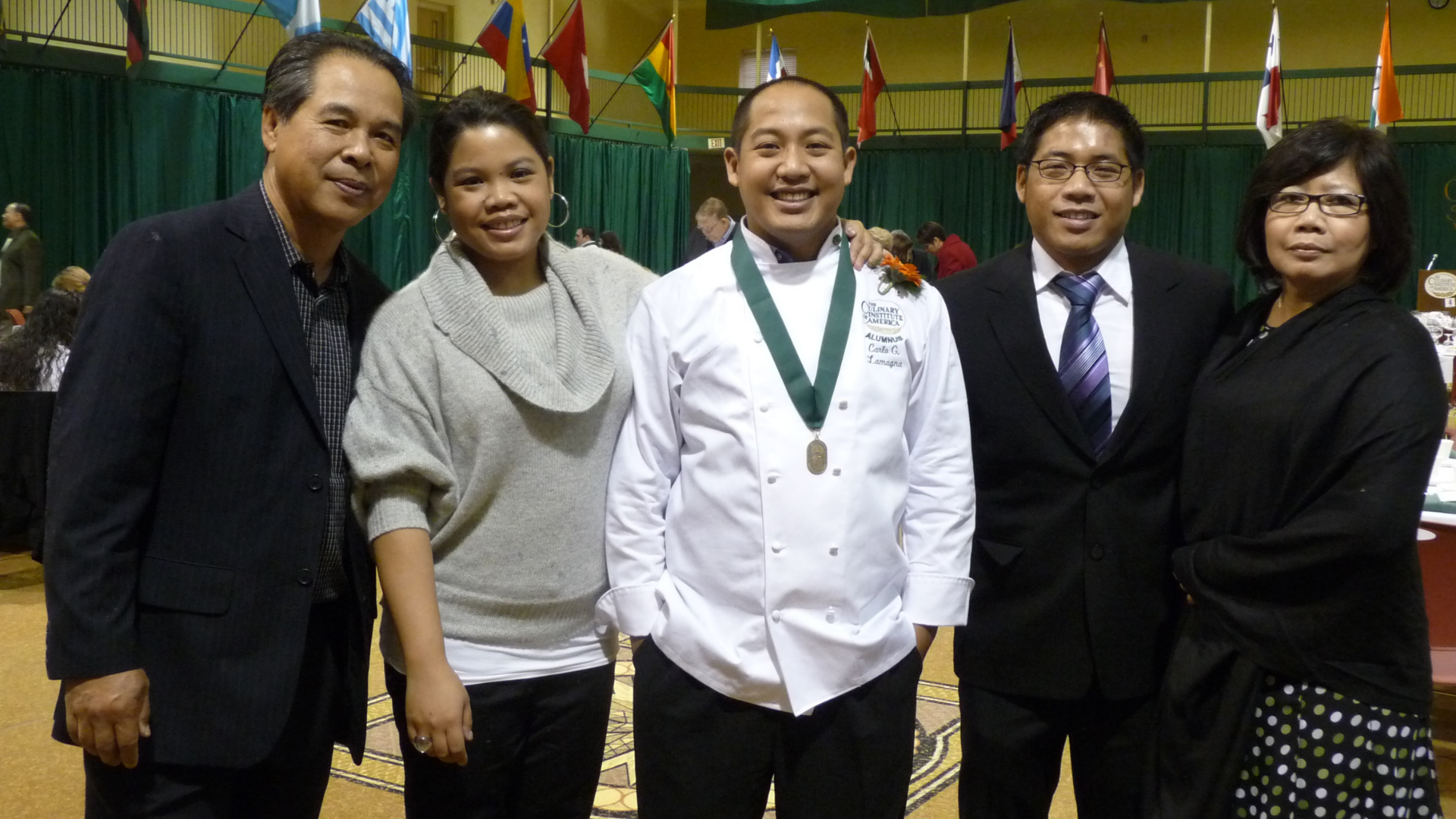PORTLAND, Ore. (KOIN) — Carlo Lamagna’s family and Filipino heritage are big influences in both his life and his restaurant, Magna Kusina. He’s also receiving national recognition, being named one of Food and Wine Magazine’s Best New Chefs in 2021. Lamagna is also a nominee for this region’s James Beard Best Chef Award.
Yet he instantly put some trust in me as he showed how simple and tasty “a dish called Ginataang Alimasag” is. “It’s Coconut Crab.”
This dish is something his mother cooks differently, he said. But that’s OK.
“My entire family is actually a really big inspiration in what I do,” he told KOIN 6 News. “But when I first started cooking, that was the last thing on my mind. I was like, I wanted, I need to start learning how to cook formally. So I pursued French, Italian, Spanish, German. I traveled the world, cooking these cuisines.”
What he was cooking began to shift in 2009.
That year his dad was diagnosed with a cancer that spread quickly. Lamagna said the last conversation he had with his dad was very simple.
“It was, like, ‘I love, you know, I love you. I’m proud of you. I love seeing where you’re going with your cooking,'” he said. “‘I don’t want you to forget who you are and where you come from. And you’re going to be able to tell and share with people your story and your culture and your food.'”
The story he tells with his food at Magna Kusina, 2525 SE Clinton, is drawing a lot of attention. But he’s happy to share the spotlight with Filipino cuisine and the “amazing Filipino chefs now popping up in Portland.” He name dropped a number of them — TJ from Deadshot, Geri and Ethan and Baon Kainan, Allie G and her pastries, Bobalicious in Hillsboro, Tambayan.
“There’s so many places, and then there are so many people starting to emerge,” he said.
He’s more than a chef. He’s also a Filipino martial arts instructor and has a family of his own. He said that’s why he shares his restaurant space where friends and colleagues can do pop-ups of their own outside Magna Kusina’s normal hours.
But there are different interpretations of a cuisine that can be misunderstood as fusion — a label Lamagna rejects.
“When they describe Filipino food as fusion, I’m like, no, it’s not. It’s evolutionary food. It’s an evolution, right? Fusion is taking two things that don’t belong together and forcing them to stay together. But evolution means that you blur the lines of what the influences are and make it your own. Right? That’s why I call Filipino food evolutionary cuisine.”
His evolution is represented in every bite, in every dish.
“What I cook and what I love to cook, my cuisine that I cook, obviously Filipino,” he said. “But my cuisine is an accumulation of my entire experience in life. You can taste it in each dish.”

